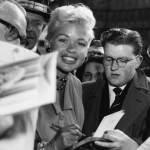However, the underlying law is complicated and requires the jury to believe that at least two people conspired to commit at least two crimes. A belief of guilt beyond a reasonable doubt is necessary for a conviction, and the defense made every effort to raise doubts. However, technical issues are unlikely to dominate the case discussion for very long.
Popular culture, to be honest, adores men, martyrs, and comeback tales. Many men who were socially marginalized during the #MeToo movement are making a comeback to prominence in our current broligarchic era while being hailed as vindictive underdogs. Combs’s attorneys prepared him for this kind of perception in court by claiming that he was a prosperous man who had been wronged by resentful, money-grubbing ex-partners.
Combs’s supporters will probably use race as another prism to cast doubt on the veracity of his conviction. Because the underlying law has racist roots, Combs’s attorneys moved to have the prostitution charges against him dismissed at the start of the trial. Combs is a Black man who is being persecuted, so you can expect any commentator whose agenda it suits to rally around him.
The criminal court has never been a trustworthy venue for justice for women who claim they were harmed by powerful men, and our legal system is undoubtedly flawed and tainted. However, the unsettling ramifications of Combs’ case continue to grow even as he and his supporters celebrate.
There are still dozens of civil lawsuits pending against him for a number of different offenses (all of which he denies any involvement in). Additionally, the 2016 recording of Combs assaulting Ventura in a hotel hallway is still “indefensible,” according to one of his own attorneys. However, there will undoubtedly be a defense soon.
The public perception of Sean “Diddy” Combs began to change less than two years ago. According to online conspiracy theorists, he was the violent boyfriend who was caught beating Cassie Ventura on a hotel camera, the suspected criminal kingpin who was being prosecuted by the federal government, and the leader of an elite sex cult.
He was widely portrayed—and vehemently denied—as the kind of man who exploited wealth and influence to further his own agenda at the expense of others. Anticipate another change in his reputation following the verdict in his case—a redemption tale, albeit one that was not earned.
The music mogul has been found guilty of two counts of transportation to engage in prostitution following a seven-week trial in a federal courthouse in Manhattan. When combined, these serious crimes can result in sentences of up to 20 years in prison. However, they pale in comparison to the other offenses for which he was found not guilty—two counts of sex trafficking and one count of racketeering—all of which carried a potential life sentence.
Following the reading of the verdict, Combs’ family applauded in court as he entered a not guilty plea to all of the charges against him. “This jury has given Mr. Combs his life,” his attorney Marc Agnifilo declared in court.
The story started in November 2023 when singer Cassie Ventura sued Combs, a rapper and producer who is well-known for his business ventures like Bad Boy Records and hits like “It’s All About the Benjamins.” Ventura, who dated him after signing to his label as a young woman, claimed that he had mistreated and controlled her for years.
She claimed that he had constantly pushed her to take part in “freak-offs,” which are orgies that sometimes lasted for days and involve sex workers and drug use. After a day, Combs reportedly paid $20 million to settle the lawsuit. However, the federal case, filed in September 2024, relied heavily on many of its details.
Prosecutors claimed during the trial that Combs had forced Ventura and another ex-girlfriend, named Jane, to engage in sexual activity by using drugs, blackmail, violence, and intimidation. According to testimony from an assistant named Mia, Combs had sexually assaulted her on multiple occasions.
The fact that these alleged victims maintained their relationships with the rapper despite alleged abuse was questioned by Combs’s defense team, which emphasized text messages and other pieces of evidence that suggested these women were genuinely willing participants in his lifestyle. The complex issue of what consent means in a relationship where a man alternately abuses a woman and lavishes her with gifts and affection was at the heart of Combs’s two sex-trafficking charges.
Jane declared on the witness stand that she still loves Combs. However, consent was not the only issue in the case.
A charge of racketeering conspiracy, which is typically associated with Mafia prosecutions, was also pursued by federal attorneys. In addition to committing arson (burning a car belonging to rapper Kid Cudi after he started dating Ventura) and kidnapping (an assistant claimed that Combs and his team repeatedly held her against her will), they also claimed that Combs used his employees to help him find sex workers and obtain drugs for freak-offs.
Many of the specific accusations were refuted by Combs’s attorneys, who claimed that Combs did not engage in any arson or kidnap anyone. They also described the more general racketeering charge as absurd. They maintained that Combs did not operate a criminal syndicate but rather a lawful business empire.
The question of whether prosecutors overreached is evident now that Combs has been cleared of all but the most straightforward charges—transporting individuals across state lines for prostitution. Prosecutors were able to combine several lesser-known alleged offenses, including bribery and drug possession with intent to distribute, into a single, ostentatious charge that carried a possible life sentence thanks to the RICO statute.














